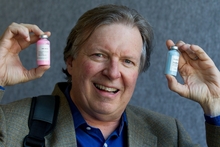Oct 11, 2013

PolybaticsTracy Thompson, chief executive of biotech company Polybatics, raised less than half his ideal target of $1.5 million.
The veteran capital raiser says the firm’s financial woes are par for the course for life science companies in New Zealand. Too many investors flee when it comes to healthcare companies, put off by the fear of expensive clinical trials and complicated science.
“We specifically avoided therapeutic plays because we knew if we went down that path we’d be looking at tens of millions of dollars. But
Since taking over the Massey University spinoff in 2009, Thompson has run four capital-raising rounds; attracting just over $4.5 million. The summit led to a few new investors joining its register, says Thompson, which is good for existing shareholders who no longer have to shoulder Polybatics’ growth alone. But the lack of funds means the company is taking longer to reach its targets and has had to change tack.
“We are now looking at doing more partnerships, where other people actually do the development and we just wait and hope they hit the target. The downside of that is the revenue we capture has to be shared with those parties, so we are not able to maximise the returns …”
Polybatics’ technology allows it to grow protein-covered, biodegradable bionanoparticles, or “bio-beads”, far more cheaply and more efficiently than the toxic, plastic beads on the market. The beads are used for producing and delivering a host of industrial and medical products, from vaccines and enzymes to monoclonal antibodies (the basis of many drugs).
The technology has been lauded in many publications, most recently the September issue of BioProcess International.
Though Thompson is not doing as much development work as he’d like, the firm is making progress, he says, with good results coming from partners working on potential vaccines for hepatitis C and tuberculosis. It is also in talks with several pharmaceutical companies about using Polybatics’ beads for insulin production and its in-house team is about to begin clinical trials on a TB diagnostic.
